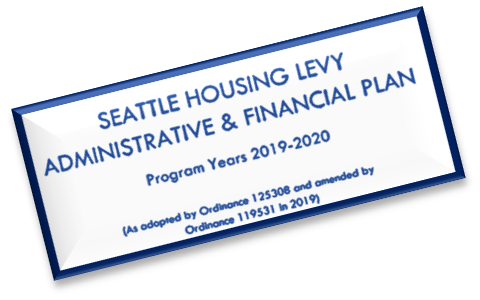

Since early 2020, the Office of Planning and Community Development (OPCD) and Office of Housing (OH) have engaged with faith, affordable housing, and other stakeholders to develop greater flexibility in the City’s land use regulations to help religious organizations build affordable housing, as required under state law. Based on that input, we have drafted a proposal for a new tool to support faith-based affordable housing development. Coupled with the City’s longstanding commitment to invest in affordable housing production, this tool will also improve certain projects’ financial feasibility and promote City priorities related to affordable housing, equitable development, and reducing displacement.
Working over the last year with the Church Council of Greater Seattle, the Nehemiah Initiative, and other organizations with experience and interest in faith-based affordable housing development, we have gained valuable insight into the types of flexibility and predictability we can implement through this legislation to facilitate these types of projects. The proposal would also fulfill requirements in Substitute House Bill 1377, adopted by the Washington Legislature in 2019 requiring cities and counties to allow additional density for affordable housing on property owned or controlled by a religious organization.
What’s new?
This week, we published an environmental review of our proposed legislation to implement this tool, a summary of which is available in our Directors’ Report. This review under the State Environmental Policy Act (SEPA) is a required step in the process to propose amendments to our land use rules and initiates a 21-day comment period. To submit a comment on the proposal, contact Nick Welch at nicolas.welch@seattle.gov or (206) 684-8203. Comments are due by 5:00 p.m. on Monday, March 29.
All housing created under this proposed tool on religious organization-owned property must be affordable to households with incomes at or below 80 percent of area median income (AMI) for at least 50 years (about $79,450 for a family of three). This required term of affordability would continue to apply regardless of whether the religious organization continues to own the property.
The practice of building affordable housing on property owned by religious organizations is not new. For decades, the faith community have been valuable partners in our mission to increase affordable housing for low-income families and individuals. Many religious organizations and their non-profit development partners have built affordable homes with the help of the City’s housing levy and other public funds.
Yet more opportunities remain. Religious organizations own property throughout our city. With this proposal, our valuable public resources can create more affordable homes when opportunities arise. We look forward to partnering with religious organizations to provide a range of solutions to meet our many needs — from the studio apartment with supports for a veteran who has experienced homelessness, to a family-sized home that lets a preschool teacher and her children remain in the city they love. For those of you who have provided such valuable input so far, thank you for your continued feedback as we finalize this proposal. And for those new to this conversation, we invite your comments as we refine the options outlined in this plan.

